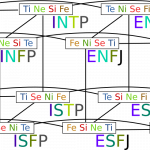We love Scrum and Agile; Scrum gives any startup the easiest path to a working product with the least complexity. Our current product is a bit different, as the majority of activities aren’t related to programming. The majority of the project is content writing and editing, but what makes it different is that content must be very well-structured. Also, we can’t put a long-term plan as content changes daily. We are currently putting a plan to make the transition to Scrum as smooth as possible, In this post, I will list the reasons why we will adapt Scrum in this project and my current concerns.
Reasons
When we were analyzing the project, we had very strong urge against scrum, the main thought was “This is just a long-term data entry project” so spending almost 10 hours (4h+15m*10+2h+1.5h) every two weeks on sprint planning, daily scrums, sprint review and sprint retrospective which is almost 12.5% of our working hours seemed a waste of time on a routine task. So, we weren’t using Scrum to handle the data entry process in this project so far and we have never had on any other data entry project. We have quite good idea about Scrum in development projects, but this project will be the first non-development project in TiTrias that uses Scrum.
The reason why we chose Scrum is very simple, this project is very empirical. Testing and adapting is a main corner stone. Also, observing things like SEO and engagement is an essential part of each week plan. Now, which framework is based on inspection and adaptation? Scrum!
The third corner stone of scrum is transparency, unfortunately, maintaining transparency was one of our main challenges and concerns, more on that later.
Back to reasons: As mentioned before, the project is of a sophisticated nature, it’s not an ordinary data entry task. Multiple editors work on the same content at the same time, and we don’t have a concise definition of “Done”. Ordinary data entry tasks have a very specific definition of done, let it be the number of words, SEO score or simply the acceptance of the chief of editors, but again, this project is different. The definition of done is extended almost weekly. Scrum allows multiple people to own tasks and allows a dynamic definition of done.
But why? you might ask. Why is it that complex? Simply because the business plan was very broad specially when it comes to market segments and targeted audience. These two are changed and expanded almost weekly. So, we needed to inspect and adapt quickly and efficiently.
Also, the content writing process is strictly coupled with the programming work. Almost weekly, content writers require new essential features and the developers introduce changes to the entry process as well as other parts related to how the entry is presented to the readers. All team members must be aware of these changes.
Concerns
This is why we are writing this post, concerns are overwhelming! Soon in this post series we will know whether we made a correct decision!
The main concern is related to transparency and openness. For a successful scrum implementation, everything must be visible to those responsible for the outcome, which is not a part of some ideologies. This might be a problem in the community and culture but still it will greatly affect our scrum implementation. Another related problem is individuality. Scrum doesn’t recognize/acknowledge “Individuals” but “A Team”, which is a huge conflict with how things currently work in the society. Employers try to convert the work into a “professional competition” between individuals to get the most outcome. That is exactly the opposite of how scrum works. The team succeeds as a whole or fails as a whole.
Also, we were using a target-based compensation. So, each individual is compensated based on his/her performance during the month. This should somehow change, unfortunately, we don’t have a precise idea about how to do that. We have a couple of cool ideas from the references below, but we are still undecided!
References:
- Christiaan Verwijs on medium
- Taylor’s 1909 book “The Principles of Scientific Management”
- Johanna Rothman blog
- Some scrum.org forums posts
Anyways, we already took the first few steps towards scrum, we planned for the worst and are hoping for the best! Stay tuned to know how good/bad things will go.














0 Comments